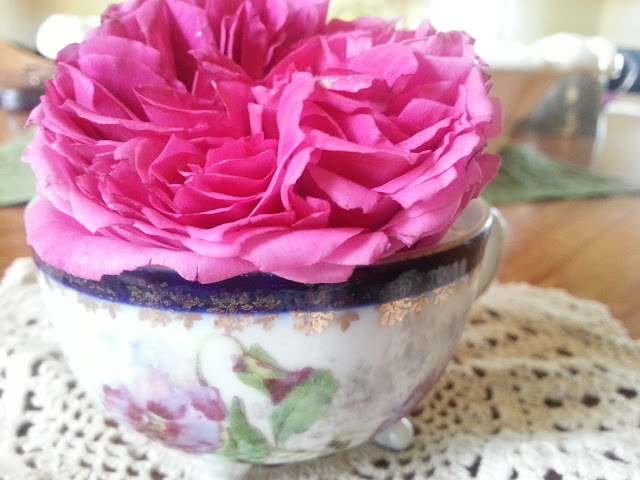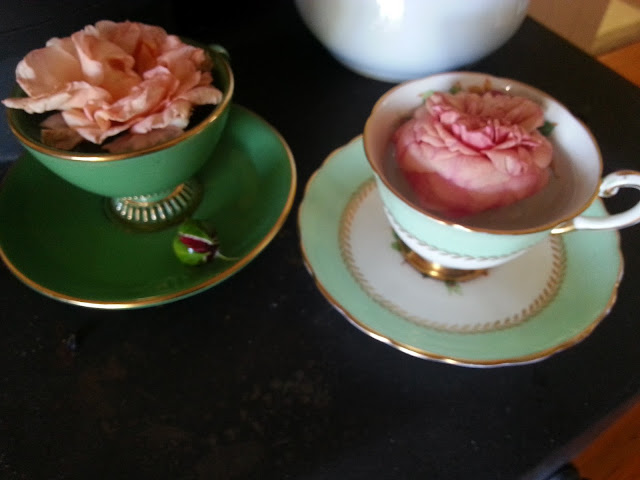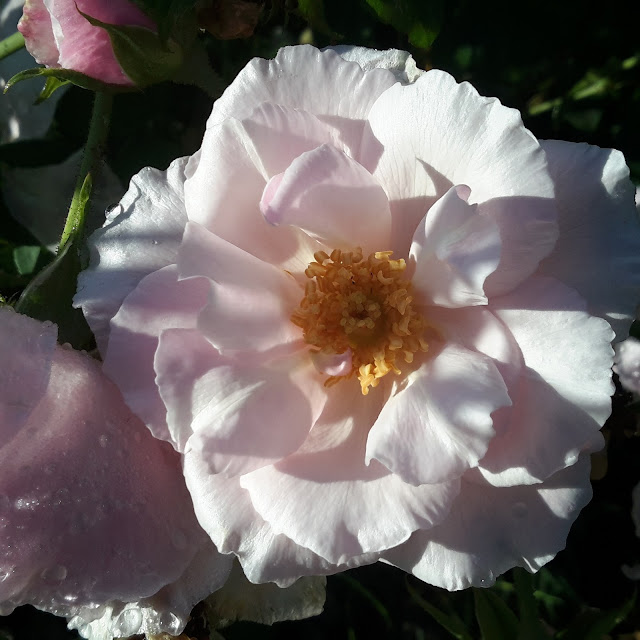 |
| Strawberries & cream Tea rose, Mrs B R Cant 1901 |
Our warm climate is best suited to the old Tea roses that bloom through the cooler months when other roses have gone to sleep. Many of these Tea roses don't survive in the cold Northern Hemisphere so you won't read much about them in English and European rose books*. They are not native to Australia, but tell the story of survival through drought and neglect.
The joy of building up this collection is increased by the knowledge that these treasures will bring pleasure to another generation. Which is why we don't grow many of the more recent roses, such as the English roses and other shrub roses so popular these days. I fear that these, lovely as they are, will replace the heritage roses that members of Heritage Roses in Australia have worked so hard to preserve.
 |
| Tea rose, Mrs Reynolds Hole 1900, has the most intensely strong rose fragrance |
So what has this to do with gourmet rose petals? I love locally grown, fresh produce, but I had resisted the idea of harvesting our precious heritage roses for their fragrant petals. Until I had an epiphany! In producing our gourmet rose petals from our heritage roses, we were in fact saving our heritage roses and enabling more to be added to our collection. And these would also help our therapeutic work with women recovering from domestic violence.
There you have it! The 'what' behind 'why' we harvest our precious heritage roses for our fragrant 'gourmet rose petals'. These are available from us fresh or dried and are lovely in herbal teas, in home-made icecream and sorbets, in vinegars and sauces and used as a spice in middle eastern cooking.
In addition, we use our fragrant rose petals and roses in our botanical rose balms; in our bespoke tussie-mussies and bouquets; and we do lovely therapeutic rose workshops for women recovering from trauma, for community groups and small groups.
*Australian authors, Chapman, Drage, Durston, Jones, Merrifield & West have published a wonderful book, 'Tea roses, Old roses for warm gardens', which is a valuable resource for Australian conditions.
Find us on Facebook under Edgeworth Lley-Heirloom Roses, or go to our new website; https://www.edgeworthlley-heirloomroses.com.au/
We would love to hear from you ..

































